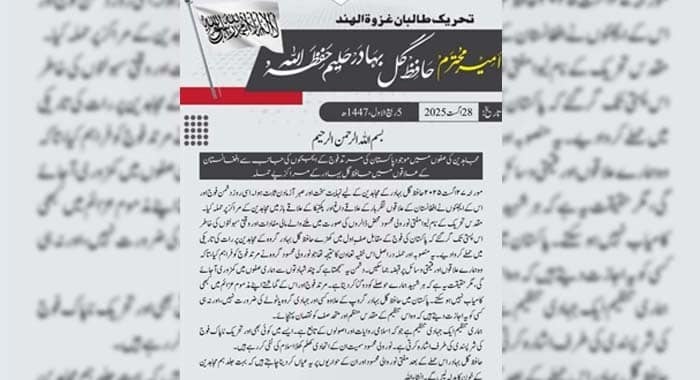Social media reports suggest that the banned Gul Bahadur Group has accused the TTP of collaborating with the Pakistani military to attack their centres, resulting in the deaths of several key commanders.
In a statement circulated on Telegram, the group led by Mufti Noor Wali Mehsud is alleged to have cooperated with Pakistani security forces in exchange for financial gain, targeting Gul Bahadur’s strongholds in an effort to seize control of valuable regions and resources.
The Gul Bahadur Group has warned of retaliation, calling the TTP completely anti-Islam, and declared that no other groups will be allowed to operate in Pakistan. Hafiz Gul Bahadur’s statement, alongside TTP’s threats, suggests that the conflict, which began in Kunar, Nangarhar, and Khost, could escalate, expanding further into Afghanistan.
The ongoing war between these groups is driven by personal and factional interests rather than the cause of Islam, exacerbated by pressure from Pakistan’s military. This situation has sparked widespread support in Pakistan’s border regions, especially in Khyber Pakhtunkhwa, Balochistan, and the tribal areas, where people stand united against these anti-national forces.
Notably, the TTP had previously accused Gul Bahadur’s group of espionage for Pakistani forces. Mufti Noor Wali Mehsud also issued an ultimatum for Gul Bahadur to vacate the area, which was rejected. Instead, Gul Bahadur’s group challenged the TTP to take control by force. Following this, heavy clashes broke out between the two groups in Khost and Nangarhar last night, resulting in significant casualties. However, Hafiz Gul Bahadur’s Telegram statement indicates that his group suffered the heaviest losses.





